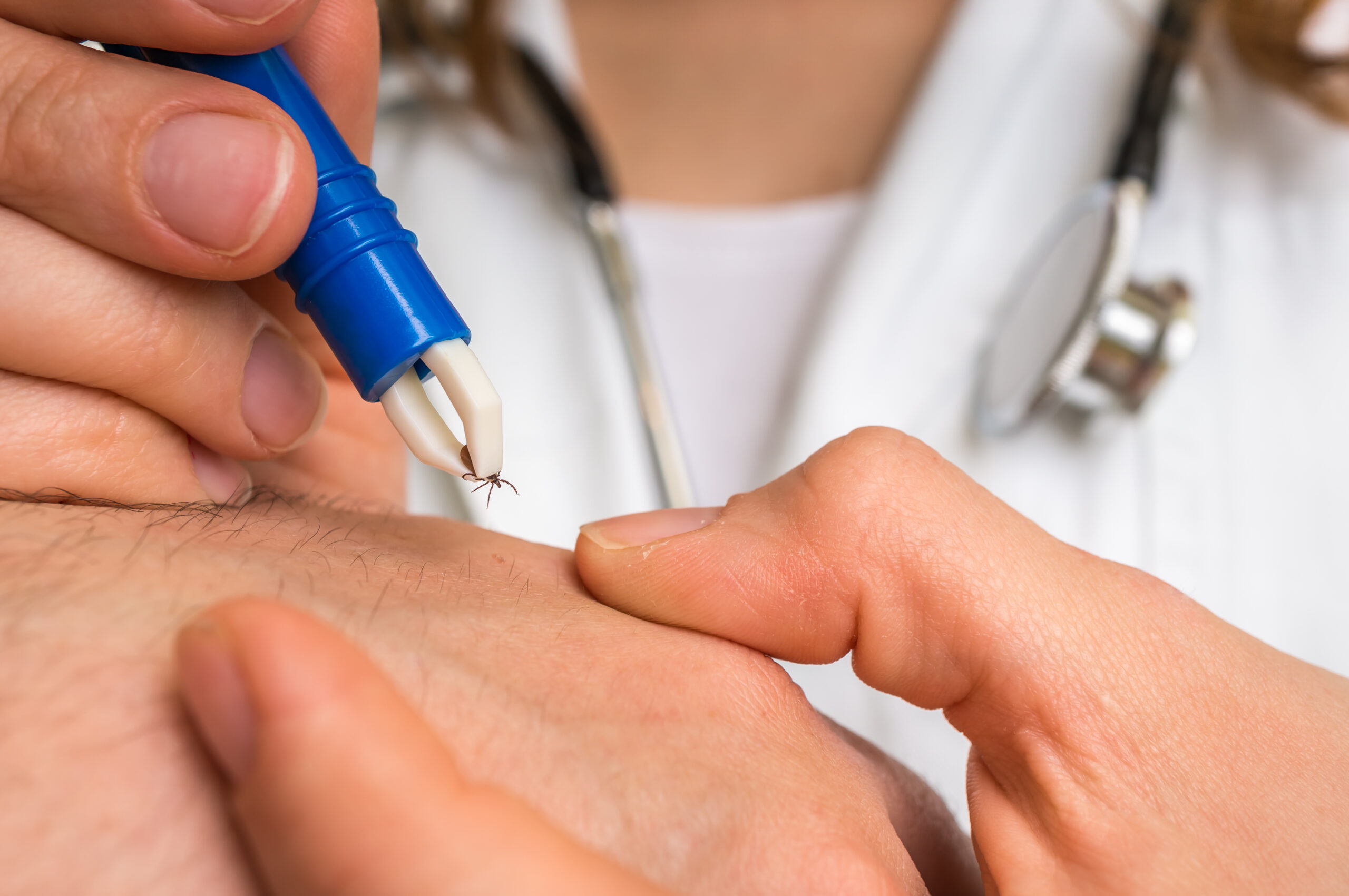As a functional medicine provider deeply rooted in the realms of clinical nutrition and advanced diagnostic testing, my journey with clients battling Lyme disease has been both enlightening and challenging.
Lyme disease, caused by the bacterium Borrelia burgdorferi transmitted through the bite of infected ticks, manifests in various ways. That makes Lyme detection and management complex.
Today, I delve into three symptoms of Lyme disease that warrant immediate testing and highlight the integrative medicine approach to tackle this intricate ailment.
Important Symptoms that could indicate you have a tick-borne illness:
- Unexplained Fatigue and Flu-Like Symptoms: Often mistaken for common flu or chronic fatigue syndrome, unexplained fatigue accompanied by flu-like symptoms such as fever, chills, headache, and muscle aches should raise suspicion for Lyme disease. The bacteria’s ability to evade the immune system initially can lead to systemic symptoms resembling a viral infection. However, when these symptoms persist or recur without a clear cause, Lyme disease should be considered.
- Erythema Migrans (EM) Rash: The hallmark sign of Lyme disease, the EM rash presents as a red, expanding bull’s-eye rash around the tick bite site. While not everyone develops this distinctive rash, its presence is a clear indicator of Lyme disease and warrants immediate medical attention. However, it’s crucial to note that not all rashes associated with Lyme disease resemble the classic bull’s-eye pattern; some may appear as solid red or bluish-purple lesions. Any unexplained rash following a potential tick bite should prompt Lyme disease testing.
- Neurological and Musculoskeletal Symptoms: Lyme disease can wreak havoc on the nervous system, leading to a myriad of neurological symptoms such as severe headaches, stiff neck, facial palsy, tingling or numbness in extremities, and cognitive dysfunction. Additionally, musculoskeletal symptoms like joint pain and swelling, often migrating from one joint to another, can significantly impact a patient’s quality of life. These symptoms, especially when coupled with a history of tick exposure, necessitate thorough evaluation for Lyme disease.
Now, let’s explore the integrative medicine approach to Lyme disease testing, detection, and management.
Integrative Lyme Disease Testing: Traditional Lyme disease testing, primarily relying on serological tests like ELISA and Western blot, has its limitations, especially in the early stages of infection. Integrative medicine embraces a comprehensive approach to Lyme disease testing, incorporating advanced diagnostic modalities such as polymerase chain reaction (PCR) testing for direct detection of Borrelia DNA and assessing immune function, inflammatory markers, and co-infections commonly associated with tick-borne illnesses. This multifaceted approach improves the sensitivity and accuracy of diagnosis, which is crucial for early intervention.
Detection and Management: Early diagnosis is paramount in mitigating the progression of Lyme disease and preventing chronic sequelae. Integrative medicine emphasizes a holistic approach to Lyme disease management, combining conventional antibiotic therapy with adjunctive therapies to address immune dysregulation, inflammation, and microbial imbalances. Nutritional interventions tailored to individual needs, including anti-inflammatory diet modifications and supplementation with essential nutrients and botanicals, support the body’s innate healing mechanisms while minimizing the side effects of conventional treatment.
For patients grappling with chronic Lyme disease and persistent symptoms years after initial infection, integrative medicine offers a beacon of hope.
A multidisciplinary functional medicine team collaborates to restore balance and vitality to affected individuals by addressing underlying factors contributing to chronicity, such as immune dysfunction, mitochondrial impairment, and neuroinflammation.
Therapeutic modalities encompass a spectrum ranging from intravenous therapies and ozone treatment to neurofeedback and mind-body practices. They aim to alleviate symptoms and enhance overall well-being.
In conclusion, Lyme disease presents a multifaceted clinical challenge, demanding a nuanced approach that transcends conventional paradigms. Integrative medicine, grounded in the principles of personalized care and holistic wellness, offers a comprehensive framework for Lyme disease testing, detection, and management.
By harnessing the synergy of advanced diagnostics, evidence-based interventions, and compassionate patient-centered care, we stride towards unraveling the complexities of Lyme disease and empowering individuals on their journey to healing and restoration.



